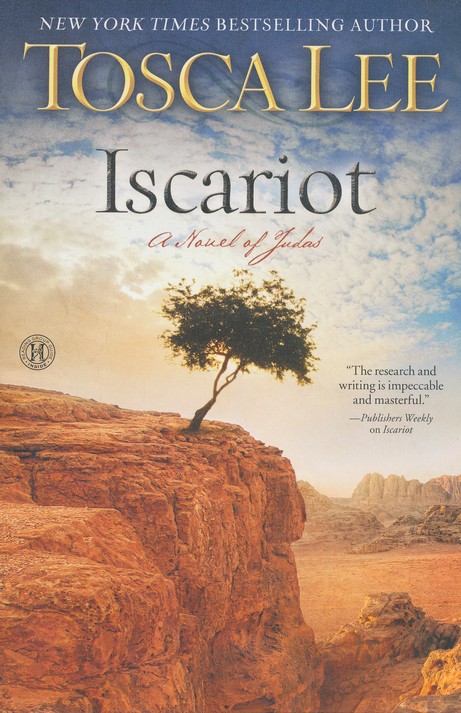 Last year I selected Tosca Lee’s ISCARIOT for my book club ~ a novel exposing the life, and death, of Judas Iscariot, unveiled by Tosca’s research and imagination.
Last year I selected Tosca Lee’s ISCARIOT for my book club ~ a novel exposing the life, and death, of Judas Iscariot, unveiled by Tosca’s research and imagination.
We had a terrific discussion and finished up with a wonderful Q&A with Tosca which I’m thrilled to share with you now. Just beware, that while you know how this story ends, there are spoilers about some of the details in this book.
The Story
History has called him many things: Thief. Liar. Traitor.
Reviled throughout history and infamous for his suicide, he is the man whose very name is synonymous with betrayal . . . And he is the only disciple that Jesus called “friend.”
From the acclaimed bestselling author of Havah: The Story of Eve, Iscariot is a compelling portrait of biblical history’s most maligned character—from his tumultuous childhood to his emergence as the man known to the world as the betrayer of Jesus. But even more, it is an extraordinary view into the life of Jesus that forces us to reexamine everything we thought we knew about one of the most famous—and infamous—religious icons in history.
The Interview
NJBC: I can remember having a living Last Supper at our church in Alabama. The pastor started by asking the congregation to remember that they were not sinning if they took their grape juice and bread from Judas! So I have to ask,”how did you come to the decision to write about him?”
Tosca–An editor friend of mine suggested it several years ago as I was wondering what to do next after Havah. And I promptly rejected the idea. I knew how much work it would be! But then it just followed me around, and I realized at some point a year or so later that I was a goner.
Was it very difficult to find information on Judas’ background?
–We know a few things: that Iscariot most probably means Ish-Kerioth (the man from Kerioth). That he is probably the only disciple not from the Galilee. Beyond that, we’re mostly speculating.
How long did it take to write from start to finish?
–About 2-3 years. And I overwrote it–the original was about 800 pages. I just got totally lost in it, and had to really carve the story out in several massive edits.
In your Author’s Note you explain how you “ran away from the story” as you knew from previous experience what you were getting yourself into. Looking back, how did the experience compare to writing Demon or Havah?
–The research was far more extensive than for either of those books. It took longer to prepare and write the story and was far more daunting. I totally psyched myself out before and during in the process. It was three times the work Havah was. I also switched publishers during the process, so that added a year to the 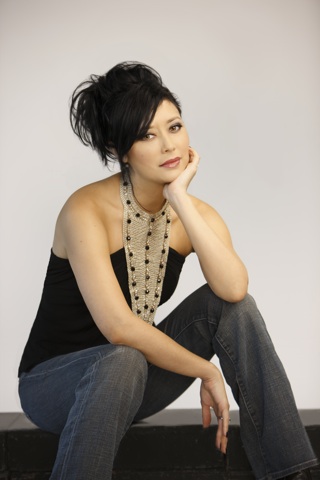 entire time it took for the book to come out–five years in all since Havah released.
entire time it took for the book to come out–five years in all since Havah released.
Early on in the book I was struck by some of the cultural differences, especially the age that boys are considered adults. I couldn’t help thinking about Jesus, when at 12 years of age He went to the Temple by himself to learn from the teachers (Luke ch.2). During your research, were there any cultural characteristics that struck you?
–The idea of purity vs. impurity, and the idea of impurity as contagious was really important in ways that we don’t think about. Earthen vessels were even put into the mikvot to cleanse them of impurity (though stone vessels weren’t subject to the same weakness as clay ones). These kinds of considerations have practical basis in our society today. But they were spiritual then. It really gave context to the times that Jesus sat down with those considered impure in society. And to touch a leper–it was supposed to render Jesus impure, himself. This was radical stuff.
Would you share with us a couple of your favourite fiction books?
–Oh, I’ve always loved The Red Tent, The Mists of Avalon, Memoirs of a Geisha. I love Anne Rice’s books. These are the books that have inspired me for decades.
Finally, not a question, but….please do make your “three theses’ worth of historical detail” available to us one day!
–Aieee!! That’s a lot of information to write up in coherent format! But perhaps one of these days. There’s so much I really wanted to share with readers that I couldn’t include except in passing because it would bog the story down. Fascinating stuff.
I was wondering how some of your more conservative (for want of a better word) readers felt about the portrayal of Judas and Jesus as more multi-dimensional than usual.
–Some of them didn’t like it–it’s uncomfortable humanizing someone like Judas for man. And some didn’t like the human portrayal of Jesus. But the Jesus I found as I dug and dug was someone that I don’t think many conservatives would be comfortable with. The conservatives of the day weren’t. The Bible tells us that his own family thought he was out of his mind.
After reading the authors note I felt like you were still posing many questions to yourself about who Judas was and what made him tick. You could have perpetuated the popular opinion that Judas was evil. What made you take the position of Judas believing he was protecting Jesus?
–Judas was really the Jewish Everyman of the day for me as I was writing. I really figured him to be a product of popular thought and sentiment of his times. But halfway through the book, especially by the time of the dinner at Matthew the tax collector’s house, I realized I was writing my story. I was Judas. I am the one who, in the company of super holy Christians who seem to have it all together, feel like a mess. You know?
What was it in your research that made you believe that Judas (or any of the disciples) didn’t really understand who Jesus really was?
–The Bible pretty much points to this. They didn’t get it when he said he must die. They wanted to prevent this, when that is the climax of his mission. And historically, a Jewish messiah was supposed to be a messiah to deliver a people. Judas Maccabee was considered a messiah. This idea of personal salvation was not contemporary to the first century–salvation was a corporate situation, a national salvation from oppressors.
You mention that little is known of Judas’ childhood. How did you decide what kind of childhood give him in this book?
–I really based it on what was going on about the time of Herod’s death. Thousands and thousands of Jews were terribly affected by the uprisings. Thousands were crucified that one summer, as I mention in the book. Many were hungry and poor. The Romans, who wanted the valuable trade crossroads wanted only two things from the Jews: taxes and for them not to stir up trouble. Two requirements. Realistically, Judas might not have been as old as I have made him at the time of Jesus’ ministry (40 was quite old at that time–eek!) but I really felt there was no way to set the political and social context without including the fallout of all that happened in 4BC before Herod’s death (there’s even more that I couldn’t fit in) from the eagle profaning the Temple to the burning of the teachers and students, to the crucifixion of thousands and the razing of towns like Sepphoris to the massive taxes… and then of course the issues that arose under Pilate later on. All of these events would have impacted any Jew at the time in a personal way.
I would like to know more in regard to the Sons of the Teacher. Is this a fictitious group or based on research? They were clearly an underground group. What was the aim of the organisation? Do you believe such a group was at work in the death of Jesus?
–The Sons of the Teacher is fictitious, though zealot groups certainly formed leading up to the Great War thirty years after Christ’s death. So even though I made the group up, similar groups very likely existed. Judas bar Hezekiah is a historical figure, as were his sons and grandsons (who took part in the rebellion leading up to the Great War and figured into the drama at Masada). We know that Bar-Abbas, whoever he truly was, was a famous bandit. And bandits figured centrally into the drama of the time, which probably attests to his popularity with the crowds who wanted him released. See the book about bandits in my author’s note–it’s really fascinating if you want to know more.
Iscariot is such a very brave and amazing story…to flesh out the person of Iscariot and what may have motivated him in his choices. Was there ever a time in writing this story when you considered it was “too much” and you needed to stop and reconsider? If so, what was it that spurred you on to continue and finish the book?
–I have this habit of saying, “I will write this story of Eve/Judas/The Queen of Sheba” and getting contracted and then later of saying, “Oh crap.” But by then,
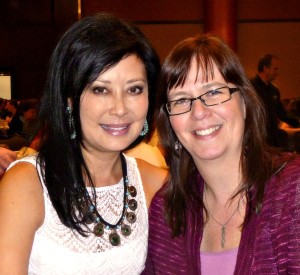 the machinations of producing the book–the catalogs, the sales meetings, the marketing–is already underway. So by then I have no real choice but to somehow do it.
the machinations of producing the book–the catalogs, the sales meetings, the marketing–is already underway. So by then I have no real choice but to somehow do it.
I had never considered how John the Baptist’s followers may have felt towards Jesus, especially when John was imprisoned by Herod and then killed, while Jesus performed miracles and healings. Do you think John would have tried to redirect his faithful followers to Jesus?
–I think in some ways he did, especially when he called Jesus the Lamb of God to his followers. They were cousins, so they were related, so I didn’t see any real reason for rivalry between them unless it was among their followers.
With the advantage of hindsight as Christians today, do you think we would behave any ‘better’ than the disciples did?
–Hindsight really is 20/20. Knowing what we know, I think we’d see it all very differently (that’s not to say that we wouldn’t still botch it all very well, probably :). That is the thing that I think most people don’t understand: that the disciples at the time didn’t have the advantage of 2000 years of church teaching and interpretation of those events. They only had what they knew (oppression, looking for a Messiah) and this unconventional healer/teacher and the fear of being violently put down and killed to go on.
I found myself softening towards Judas through the story you wrote and became very conscious of my own failings and limited human perspective. Was it always your intention to create Judas’s character in such a way?
–It was my intention to say “really, are we any better or different?” There is the parable about the Pharisee and the tax collector… I think when we say “Thank God I am not like that Judas!” that we really insert ourselves into the parable in a very concise way.
I imagine working on a book like Iscariot is intense with huge amounts of research and hours and hours of writing and rewriting scenes etc. What do you do to unwind and relax during and/or after creating a novel like Iscariot?
–I watch TV… I drink wine… I spend time with friends who drag me out into the world to socialize or go for walks. Lately I have returned to ballet (I once had aspirations to be a professional ballerina, about 30 years ago :). After I finish any book, I go on a massive house-cleaning spree. It’s a ritual for me.
How do you balance the theology behind your stories (and your own beliefs) with a storyteller’s licence to fill in the blanks?
–It’s got to jive with scripture and fit the historical context. Those I have got to get as right as I can get them. Beyond that, it has to fit with human nature. People have to do things that make sense to them in context. Those are my criterion.
Do any other men or women of the Bible stand out to you as people we may have misjudged or misunderstood?
–Oh, tons. Most of them. I don’t think Abraham was always that great of a guy. David was a mass murderer (we forget that part). Jezebel–I think there’s a lot of interesting stuff going on with her. Rahab the harlot obviously had more good in her than she’s given credit for. There really is more to the story with everyone than the bare facts of what we know about them–even in our circles of friends and families. And with public figures today.
Do you have more Biblical fiction in your writing pipeline? If so, could you tell us about it?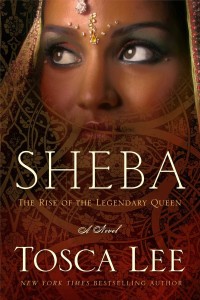
–Right now I’m doing a book about the Queen of Sheba, who was a pagan, but a large part of the book is about her journey to visit and relationship with King Solomon. After that… I don’t know. These books are absolutely taxing!
What brings the greatest joy as a writer?
–Being in the flow. Really watching a scene unfold almost of its own accord. And every now and then having a sentence come out that you just look at and sigh and say “yes, that’s right.” And then of course, being done with the project. Finally. Until it’s time to edit. Or start the next one. 🙂
What is the greatest struggle?
–It never ends. There are four editing cycles after the first draft is done. And then you start the next book, and you wonder how in the world you’re going to make it as good as your last and please your readers and the reviewers at the same time… and whether you even have another story in you, or if you ever knew how to write in the first place. And you think, “I’m so tired. I don’t feel like being at this desk.” Because your friends are out going to dinner or drinks, and the laundry is piled up and your favorite movie is on TV and there you are sitting in the same chair that is probably putting a big flat dent in your butt. But then you go and start the work and find a way to believe that there’s going to be something special somewhere in those pages.
Please share something of your own faith journey
–You know, I’ve grown up in the church, and hearing about salvation through grace all my life. And I was a good girl. But somewhere in my 30s, as I was going through a divorce, I really started to wrestle with this idea of grace. I had been a “good girl” for so long, I never really had to step out and decide whether God’s grace was enough for me (and of course it is). My book, Demon, was really a lot about that for me.
Thanks Tosca – your time and effort is valued and appreciated greatly.
–Thank you for reading Iscariot and taking the time to discuss it and include me! I love my readers Down Under, and appreciate you all!
Relz Reviewz Extras
Visit Tosca’s website and blog
Buy Iscariot from Amazon or Koorong


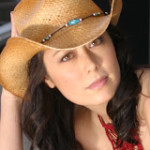
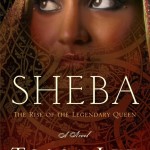
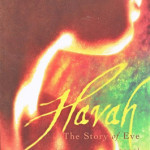
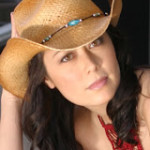
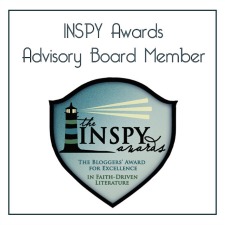




April 21, 2014 at 6:24 pm
Rel
I love your Book Club Q&As as they are a collective group of questions so cover many topics. Lots of enlightening material is this one with Tosca. Thanks for sharing it with us.
April 22, 2014 at 8:25 pm
Ian » Weren’t Tosca’s responses fascinating? I love my book club as well – the girls come up with some incredibly insightful and meaningful questions!
April 22, 2014 at 7:57 am
Tosca Lee! 🙂 Great author. I remember reading ” Iscariot” and thinking the depiction of Judas — and the story itself — was mind-bending. Now, I am more and more realizing that, just like you said, Rel, there is something very brave about writing this story. The Jesus and Judas portrayed in this novel definitely aren’t the ones most readers have in mind when reading The Bible. It’s scary, really and practically scandalous!
But What. A. Phenomenal. Message. : ” Are we any different?”
It left me pondering days after reading the book and it still grips me now. Exceptional storytelling, Tosca. Truly. Very interested in ” Sheba”.
April 22, 2014 at 8:15 pm
Ganise C. » Tosca is fabulous, isn’t she, Ganise? She is the most charming person, too. It was a real privilege to meet her in person last year.
April 22, 2014 at 11:59 pm
Thank you, Ian and Ganise. And thank you, Rel, for reading Iscariot in book club and featuring it here–and for your ongoing support of authors!!